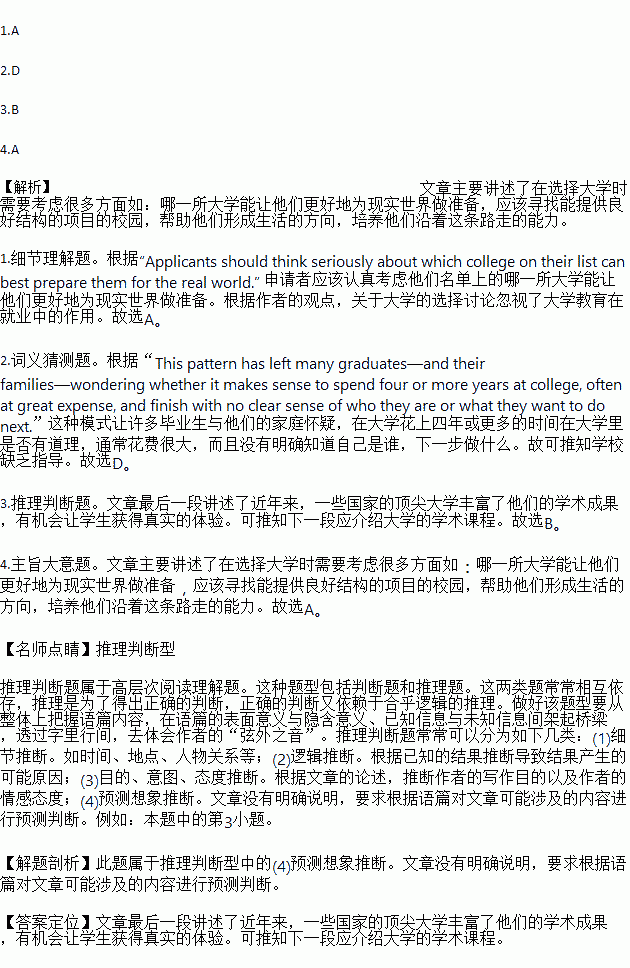题目内容
This is a time of year when high school students and their families are thinking hard about college. As seniors,juniors,and parents identify their top choices,discussions typically focus on the college itself. Is the institution small or large? How strong are the academics?What is the social life like? Do I like the campus? Such considerations are important, but they can cover the all-important question:Where will these college years lead?
Applicants should think seriously about which college on their list can best prepare them for the real world. They should look for campuses that offer well-structured programs to help them form a direction for their lives and develop the capacity to take steps along that path.
One of the most striking recent phenomena about college graduates in America has been the “boomerang” student: the young person who goes away to college, has a great experience, graduates, and then moves back home for a year or two to figure out what to do with his or her life. This pattern has left many graduates – and their families – wondering whether it makes sense to spend four or more years at college, often at great expense, and finish with no clear sense of who they are or what they want to do next.
The trend points to one of the great shortcomings of many of our nation’s leading colleges and universities. Structured opportunities to think about life after graduation are rare. The formal curriculum focuses almost universally on the academic disciplines of the arts and sciences. Advising on how various majors connect to pathways into the workplace is typically haphazard (没有条理的). Career planning offices are often shorthanded and marginal (不重要的) to college life.
It doesn’t need to be this way, and in recent years some of the country’s top colleges have enriched their academic offerings with opportunities for students to gain real-world experiences.
1.According to the author, what do typical discussions on college choices ignore?
A. The function of college education in employment.
B. The difficulty in finding jobs after graduation.
C. High school students’ interests.
D. The academics of college.
2.Which accounts for the “trend” mentioned in the text?
A. Students failing to behave themselves.
B. Parents overprotecting their children.
C. Students choosing majors blindly.
D. Schools lacking proper guidance.
3.What will be probably discussed in the following paragraph?
A. Recipes for academic achievements.
B. Good academic programs in college.
C. Academic tips for college students.
D. Disadvantages of present college course.
4.What is the best title for the text?
A. A good way to choose a college.
B. A new trend in top colleges.
C. Connect subjects with life beyond college.
D. Make college one of life’s richest experiences.

